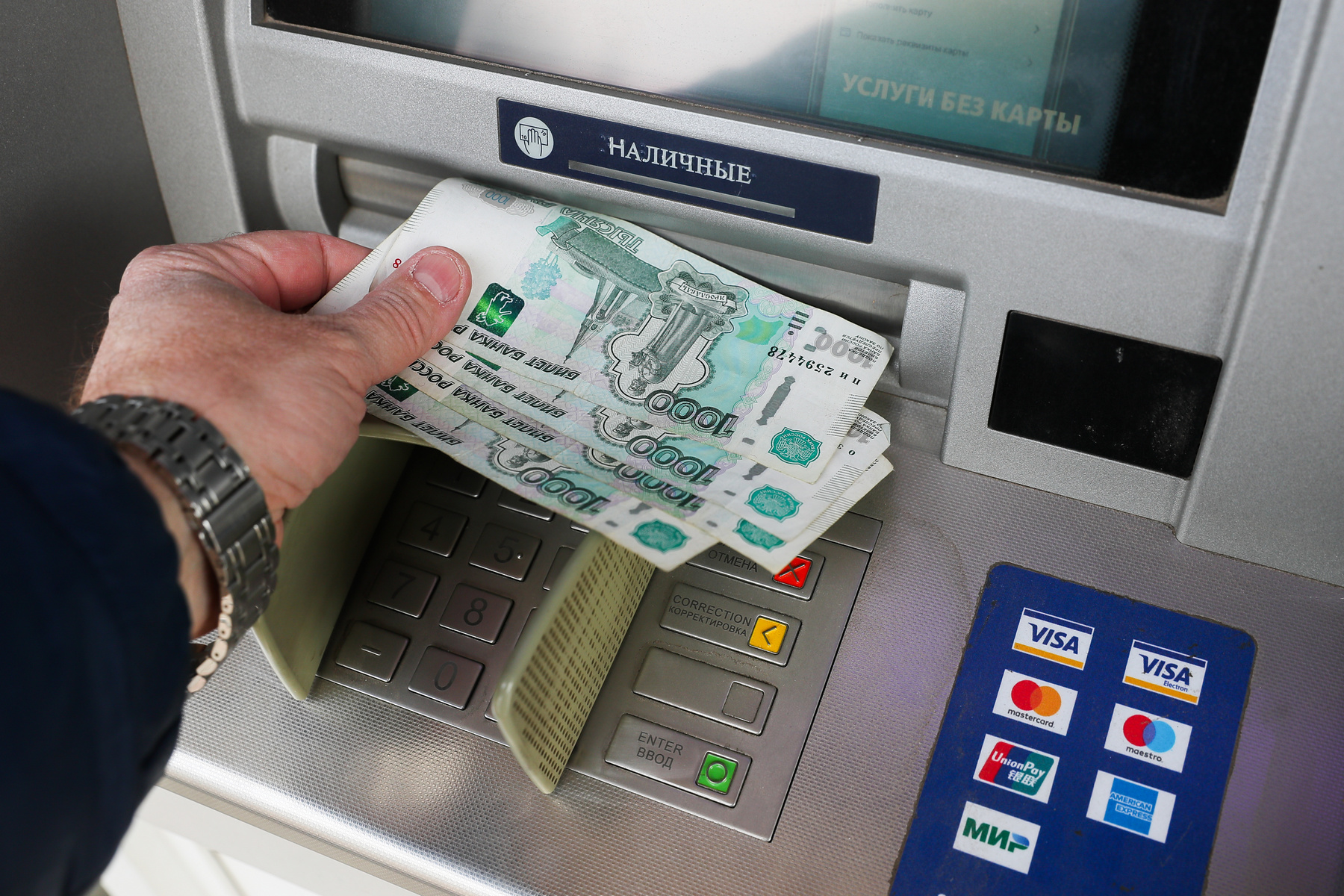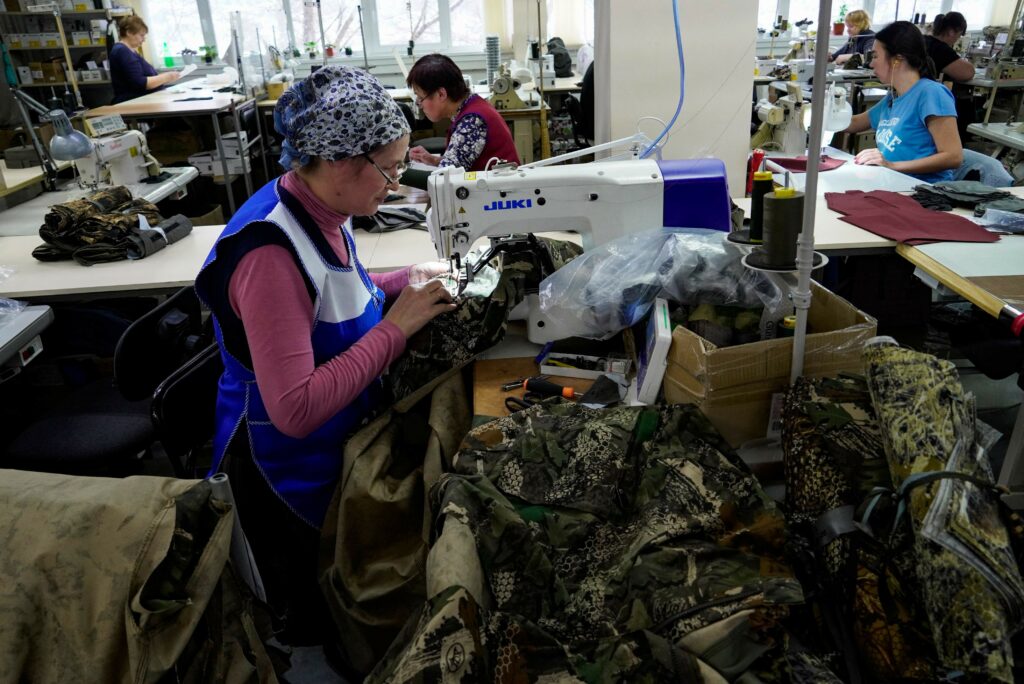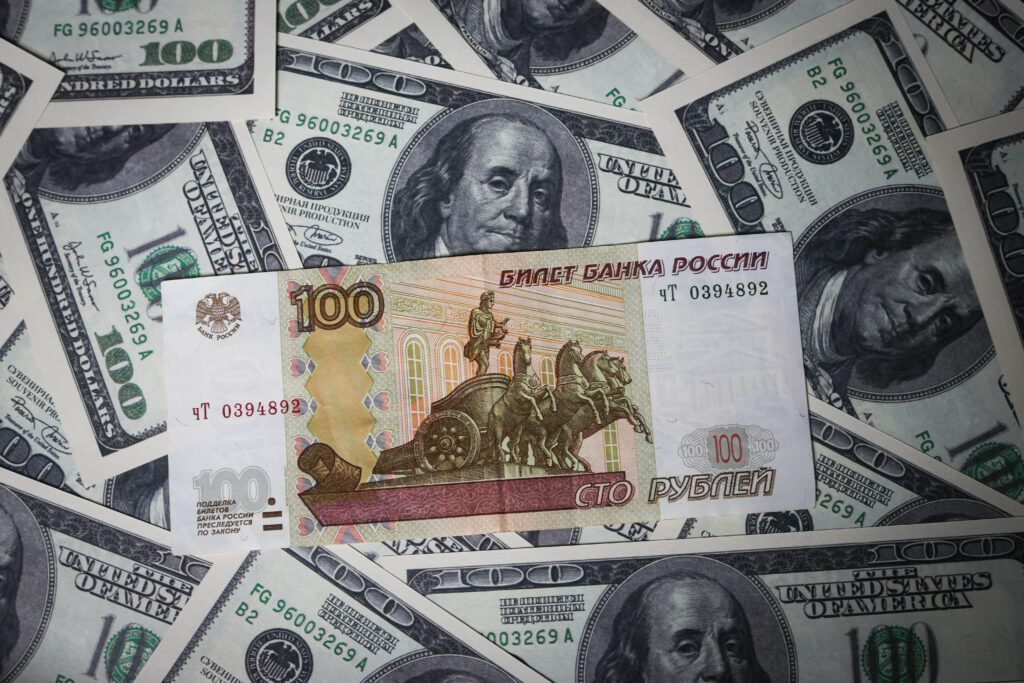Among the most discussed economic news in Russia last week was the proposal by the Ministry of Justice to confiscate property and cash from citizens in cases where “there is no evidence to prove that the assets were acquired on legitimate income, [and] that the cash was acquired legally.” The authors of the new rule believe that the confiscated assets should go to the Russia’s Pension Fund.
The proposed innovation (which is expected to become effective this year) caused an outburst of emotions. Mostly because nothing was said about the minimum amounts that may be investigated by tax officials, or about the mechanisms to be used to check the legality of assets, or about the confiscation procedure itself. The new provision was perceived as a vulgarised version of the law that has been in force for two years and which prescribes that “confiscated money received as a result of corruption-related offences as well as money from the sale of confiscated property received as a result of corruption-related offences” should be transferred to the Pension Fund. According to publicly accessible data, Russia’s Pension Fund has already received 21.4 billion roubles worth of such proceeds.
A little later, the Ministry of Justice explained that the new rule would apply to a fairly limited group of people, i.e. civil servants at the federal and regional level, municipal workers and individuals who are under the obligation to declare not only their income, but also property: their own and that of their close relatives (this is approx. 2.4 million people). However, many Russians still have suspicions about how the new law could be applied and how broad its scope might be, especially given that in late 2019 the Constitutional Court of the Russian Federation indicated that this rule could apply to people other than public officials and civil servants.
Nowadays, all Russian citizens are obliged to file tax returns to report their income. For a long time, this obligation applied only to those who earned any income outside their main job. The authorities have seriously prepared for this innovation, having decided to establish a comprehensive system to control the flow of cash on private accounts. Last year, the tax authorities began to monitor transfers to individuals, although the Ministry of Finance admitted that “bank transfers of funds between individuals are not subject to taxation.” In response, banks began to implement software to monitor the transfers of sums that seemed non-typical in the context of other regular operations on customers’ accounts. Presumably, this information will be promptly communicated to tax officials who are entitled to check the reliability of information declared by citizens.
Starting from 1 April 2020, all information about “electronic wallets” opened by citizens should be automatically transferred to the Federal Tax Service of Russia (e-wallets, offered by WebMoney, Yandex.Money and dozens of other companies, are widely used in Russia). With Mishustin’s arrival as Prime Minister, the fiscal function of the state is likely to tighten, especially given that there is hardly any talk on tax increases for business under the current circumstances, and the oligarchs have received extra relief following the introduction of a fixed-rate personal income tax on income from foreign resources, without the need to declare such income.
If we attempt to assess the next steps the cabinet might possibly take, much closer attention is likely to be paid to citizens’ income in the future. Looking at Rosstat data for 2019, the total nominal cash income earned by the citizens amounted to 62.1 trillion roubles. Last year, Russia had a flat-rate tax at the rate of 13% (incidentally, no tax was levied on state pensions, which totalled approx. 8.6 trillion, or on benefits and one-time payments, all of which hardly exceeded 500 billion last year). So it would be logical to assume that the total personal income tax collected from natural persons would amount to 6.75–6.90 trillion roubles. But according to the Ministry of Finance report on the preliminary consolidated budget performance, the total was 3.96 trillion — 58% of what should have been received. This discrepancy is largely caused by transactions between citizens, with funds transferred from one account to another without being reported by tax remitters (i.e. employers in Russia). The underlying reasons behind such transfers may include fees for services, such as housing or property rentals, construction and repair work, transport services, or goods that citizens sell to each other. Financial aid also represents a share of these payments: relatives or friends living in different regions might be using card-to-card transfers (which have become extremely simple) to support their relatives and loved ones. Importantly, the gap between the potential and real volume of personal income tax collected by the authorities is about 3 trillion roubles — far more than the proceeds to the central budget from export duties on oil and gas last year.
The authorities’ attempts to get into citizens’ pockets are also understandable because the Pension Fund’s shortfall will only get worse in the coming years. Even if we disregard the 2018 pension “reform”, which was supposed to balance off the Pension Fund, the gap was bridged only slightly: from 3.75 trillion in 2017 to 3.43 trillion in 2019. Given the rising unemployment and shrinking incomes, the 2012 forecast is based on the assumption that the federal authorities will need to find up to 1 trillion of additional revenues to increase the transfers to the Pension Fund, thus achieving a historical high). One solution to this problem will be to increase the collection of personal income tax by at least 25%, and corresponding measures will certainly be attempted.
The scale of bank transfers between individuals in Russia can hardly be established with accuracy. According to estimates, Sberbank alone handled transfers of at least 1.2 trillion roubles last year. Of these, roughly 150 billion went through its ATMs, where sender tracking is particularly difficult. With ATMs, recipients will face considerable difficulties trying to prove that the incoming funds belonged to tax-exempt personal income categories such as gifts or financial assistance. If we assume Sberbank controls approximately 45% of private deposits in Russia, this amount can be multiplied by two: the central budget can get up to 700 billion just by taxing these revenues. Another thing to bear in mind is that unlike firms and companies, citizens in Russia hardly ever undergo tax audits. If they do, this is done in the context of tracing various economic crimes. With technical means and political will, the Russian authorities are capable of peeking into citizens’ wallets quite efficiently; they will probably try to do it next year.
What are the possible negative consequences of such attempts? They will be quite numerous. First of all, we should reiterate that people in Russia traditionally do not believe that economic problems are generated by the authorities and their decisions. They are sluggish to react to a deteriorated financial situation if all or most citizens are affected. For example, this is what happened after the increase in VAT, which pulled more than 500 billion roubles out of people’s pockets last year. However, the situation will look different in this case: the new rules will extend onto specific people, mostly members of the middle class, who are unhappy about any rough-and-ready interferences in private life. Since proceeds from personal income tax in Russia are sent to regional budgets (rather than the federal budget, as is the case in the USA, for instance), one can expect that the new measures will be implemented with varying intensity in different regions (depending, among other things, on the financial situation of the region and the degree of its subsidisation by the federal centre). In particular, this may mean that transfers coming from Moscow to the provinces will become subjected to strict monitoring. And, finally, it is very important to bear in mind that both the “suspicious” amounts as well as the funds that, under the new circumstances, are seen as a potential source to patch up the tax gap, can be easily frozen by banks on citizens’ accounts. Even if we assume that assets can only be confiscated following a court decision when there are no documents “confirming the legality of funds received,” taxes are usually collected by the tax authorities under collection orders, following which it takes a long time for citizens to prove that they were right and the state was wrong (and such attempts fail in most cases anyway). Therefore, one can easily imagine that quite a large proportion of the middle class will get angry as these people will individually face a new manifestation of official greed.
But will the Russians be able to oppose the attempts by the authorities to use the people as “new oil”? In my opinion, there are practically no effective ways to resist the government’s initiatives nowadays. While many experts predict a transition to cash payments, this development does not seem plausible as the overwhelming proportion of settlements between citizens are now carried out by those who have mastered modern financial instruments and are not going to give them up (in fact, this is just impossible in some cases, e.g. when transfers are being made between regions). Systems such as PayPal are eventually tied to bank accounts and e-wallets, both of which are quite easy to monitor. Settlements in cryptocurrencies, subsequently converted into cash, are becoming more popular (there are dozens of such outlets in Moscow’s City alone), but this service will neither be available nor attractive for mass consumers for a long time to come.
Will the Russian authorities be able to increase budget revenues significantly by exerting more pressure on citizens? In fact, this is perhaps the most intriguing question in the whole story. Today, 3.6% of Russia’s GDP is collected from personal income tax. In the USA, this tax alone represented USD 1.718 trillion in the federal budget in 2019, and another amount of approx. USD 730 billion went to state budgets, accounting for 11.4% of GDP in total. Of course, Russia does not have the American tax rates. Nor does it have U.S.-style tax deductions, which enable up to 44% of citizens to pay no income tax at all. But it has already seen a departure from the flat-rate personal income tax. This fact, alongside the new governmental initiatives, indicates that the real struggle for citizens’ money in Russia has only just begun.










